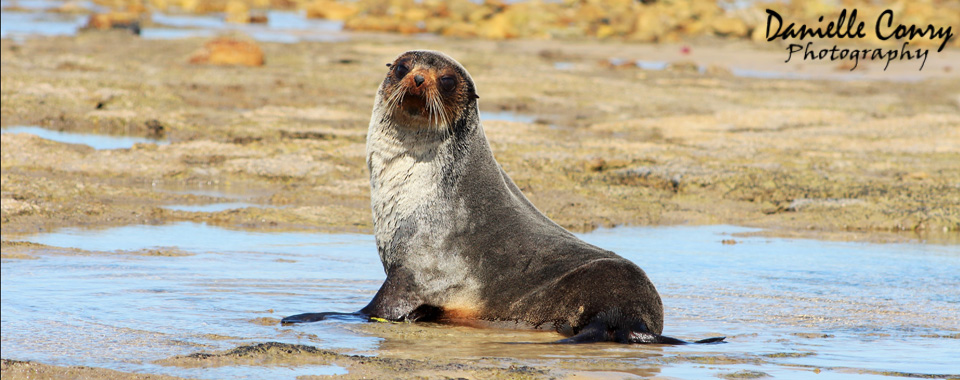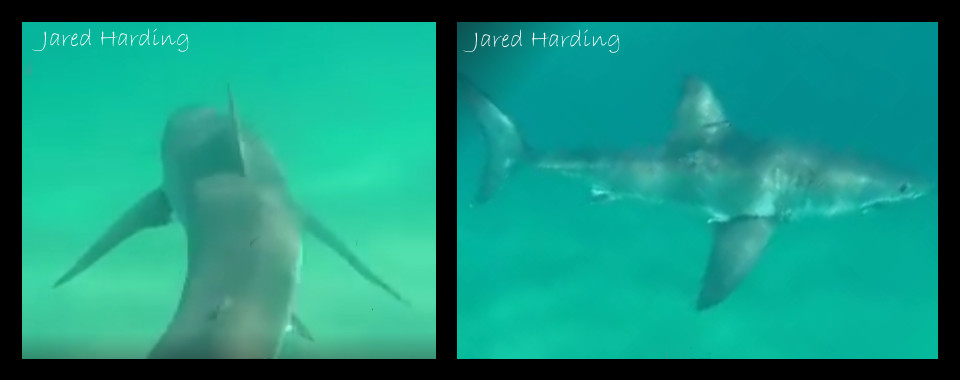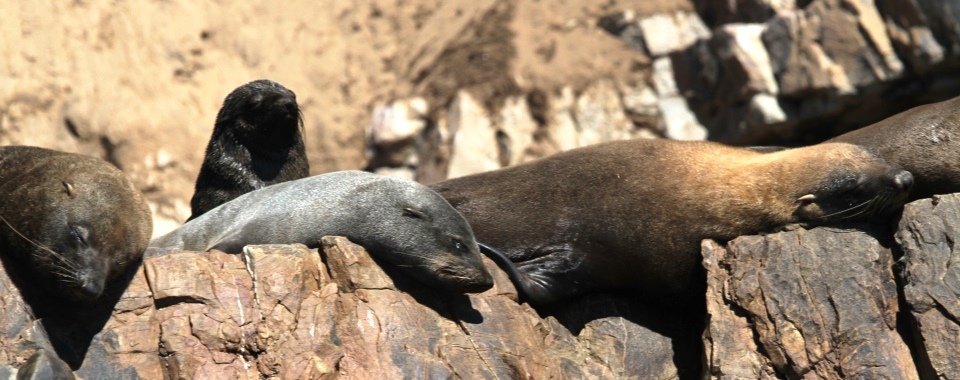Although the Cape Fur seal (Arctocephalus pusillus pusillus) is southern Africa’s only endemic pinniped species, we do get a number of vagrant pinniped species that visit our shores. In Plettenberg Bay, we see both Subantarctic fur seals (Arctocephalus tropicalis) and southern elephant seals (Mirounga leonina) on occasion. These species are vagrants from Antarctic and Subantarctic READ MORE
There are roughly 100 shark species in southern Africa, and while most of them are very rarely seen and are harmless, Great White Sharks Carcharodon carcharias are of the more infamous of these species particularly due to its perceived aggressive nature. This shark species is one you will recognize on sight. It has a blue-grey READ MORE
When going on a trip with Ocean Blue we visit the Cape fur seal colony which is situated on the eastern side of the Robberg Peninsula. The guests enjoy watching the seals playing in the water or sleeping on the rocks. Do you know that when seals sleep they will occasionally open one eye to READ MORE
When going on a trip with Ocean Blue we visit the Cape fur seal colony which is situated on the eastern side of the Robberg Peninsula. The guests enjoy watching the seals playing in the water or sleeping on the rocks. Do you know that when seals sleep they will occasionally open one eye to READ MORE
Marine pollution is a great problem for the world’s oceans. Every week The ORCA Foundation have beach clean ups around Plettenberg Bay to decrease the amount of marine pollution input. This is helping to keep Plettenberg Bay’s water clean, but we still see the effect humans have on the marine mammals weekly when visiting the READ MORE
The Cape fur Seal pups begin swimming at an early age and the time they spend in the water increases as the pup learns more. By seven months the pup can already swim for two to three days at a time.





